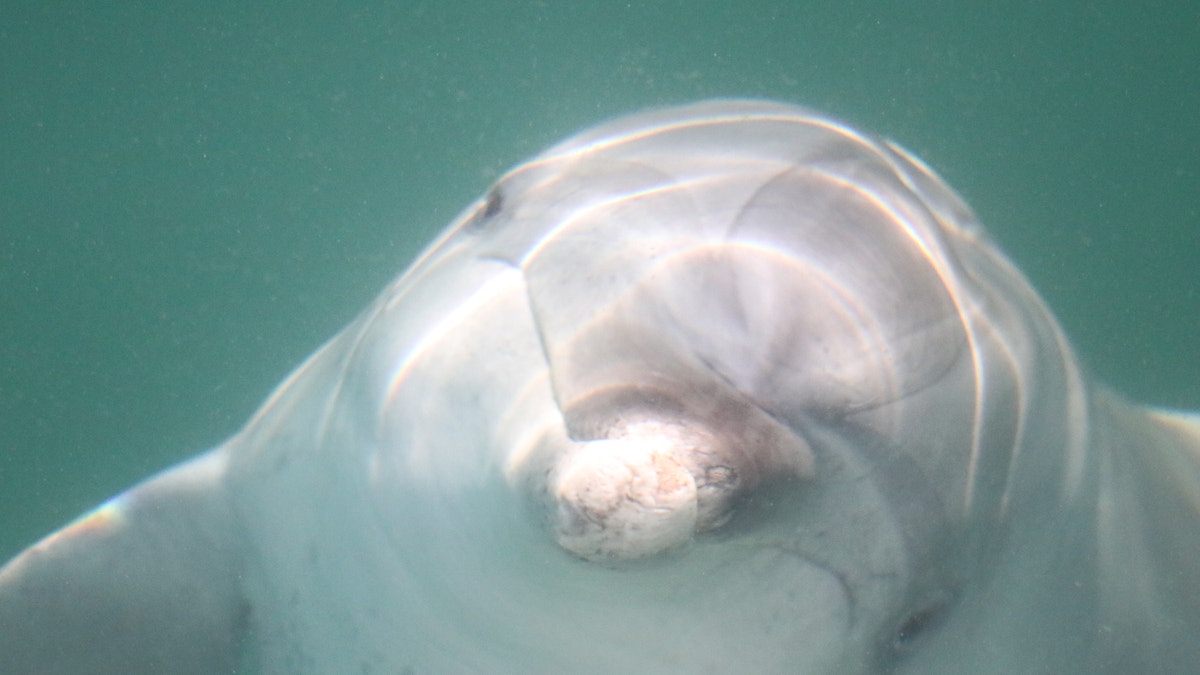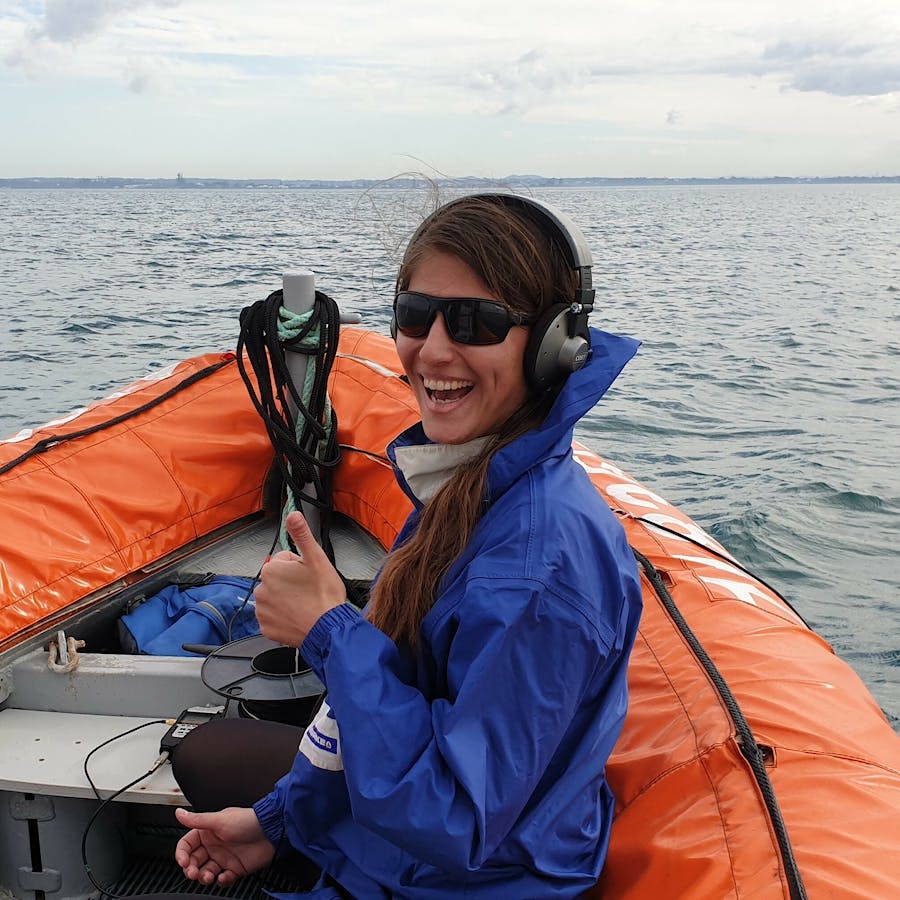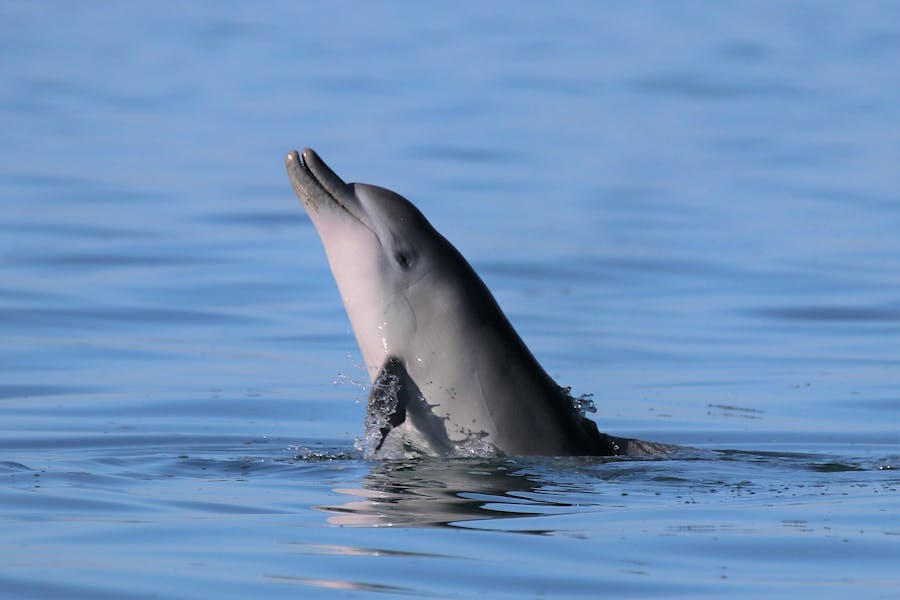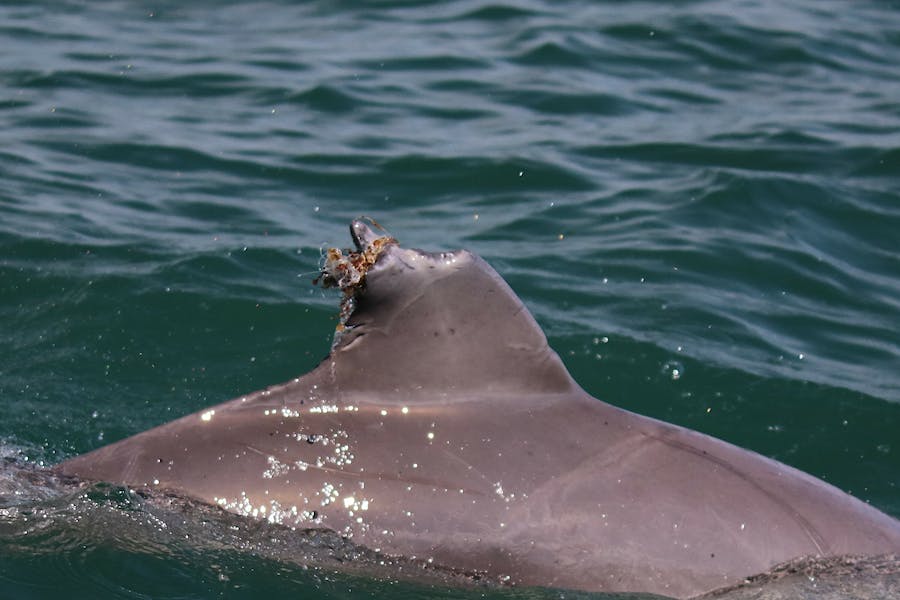
Call for action over 'begging' dolphins
Published 3:00pm 26 June 2023

 Words by Nick Crockford
Words by Nick Crockford
Pictured above: A 'begging' dolphin in Moreton Bay. Picture Dr Leonie Huijser
Researchers believe bottlenose dolphins, including some in waters off Bribie and Redcliffe, may be teaching other dolphins to ‘beg’ for food from recreational fishers.
Dr Léonie Huijser, from University of Queensland's School of Veterinary Science made the discovery as she investigated the social structure of Moreton Bay’s Indo-Pacific bottlenose dolphins for her PhD thesis.
It has also led to a separate call for “better policing of illegal dolphin feeding” in Moreton Bay.
More than five ‘begging’ bottlenose dolphins were seen off Bribie, including one with a calf, raising concerns over safety near vessels and being taught “begging” at an early age.
“Quite a way” off Redcliffe an Australian humpback dolphin also approach the research boat, but when realising it was not fishing, swam away.
 Dr Leonie Huijser
Dr Leonie Huijser
Both dolphin species live in Moreton Bay and have been seen in some areas approaching fishers fishing from jetties.
Close to Deception Bay and Redcliffe, no ‘begging’ was seen by researchers, but Dr Huijser said it may have happened or could in the future.
“Within the dolphins’ social network, I found a cluster would consistently patrol moored boats, waiting for recreational fishers to illegally toss them discarded bait or catches,” Dr Huijser said.
“Fishing is popular in the bay and it seems some dolphins have learnt to exploit it.”
Dr Huijser said the begging behaviour was dangerous for the dolphins and she was concerned it could spread. “Dolphins learn behaviour from their peers,” she said.
 A dolphin surfacing in Moreton Bay. Picture Dr Leonie Huijser
A dolphin surfacing in Moreton Bay. Picture Dr Leonie Huijser
“If these ‘beggar’ dolphins start to associate with ‘non-beggar’ dolphins, the behaviour may spread rapidly, making it a population-wide problem.
"Some of the dolphins who boldly approach boats have evidence of propeller strike and fishing line entanglement.
“During one of my first fieldwork days near North Stradbroke Island, a dolphin surfaced next to our boat but disappeared once it realised we weren’t going to feed it.
“Its fin had been badly mangled, indicating it may have been caught up in a line.”
Professor Michael Noad supervised Dr Huijser’s research project and said her findings show how adaptable bottlenose dolphins were and how this influenced their social structures.
 One of the dolphins with a "badly mangled" fin. Picture Dr Leonie Huijser
One of the dolphins with a "badly mangled" fin. Picture Dr Leonie Huijser
“Not all adaptations are positive and begging is an example of an adaptive strategy that may have short-term gain, but long-term risks,” Professor Noad said.
“Dolphins risk becoming reliant on donated fish, which is like junk food to them – quick and easy, but unhealthy. It may lead to food poisoning or nutritional imbalances."
Professor Noad said better policing of illegal dolphin feeding in Moreton Bay is needed.
“Dr Huijser’s findings should be used by wildlife rangers to increase awareness through a public education program around the potential negative effects of dolphin feeding,” he said.
Dr Huijser is planning further surveys to inform authorities about ‘begging hotspots’. The thesis has been published on UQ Library’s eSpace.
Related Stories
Top Stories

Vote for Moreton Bay Art Prize people’s choice award
There’s still time to vote for your favourite piece in this year’s Moreton Bay Art Prize exhibition.


Popular Stories

'Priority' given for Waraba plans
Waraba, formerly known as Caboolture West, will be the 36th Priority Development Area in Queensland, unlocking land for 30,000 new homes and an estimated 70,000 new residents.

Trai Fuller: ‘It’s always felt like home’
Praised by Wayne Bennett for his courageous style of play and loved by long-time Dolphins fans, Trai Fuller has locked in a two-year deal with the club he calls home. He tells us why it means so much to him

4 Ingredients author to share her favourite recipes
Best-selling author behind the hugely successful 4 Ingredients cookbooks, Kim McCosker, will share three of her favourite recipes when she takes to the stage at this year’s Moreton Bay Food + Wine Festival. Find out what she plans to make here













